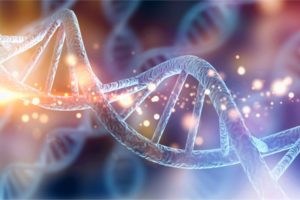To a large extent, your oral health depends on the choices you make each day. However, your DNA may also have a huge bearing on your smile’s well-being. You may have inherited certain traits from your parents or grandparents, or you might experience certain oral health issues due to random genetic mutations. In this blog post, we discuss various types of genetic dental abnormalities and how your dentist in Scripps Ranch can help you cope with the problems they might cause.
Cleft Lip and Cleft Palate
A cleft lip is an opening or split in the upper lip, while a cleft palate is an opening or split in the roof of the mouth. These abnormalities are usually identified at birth or shortly thereafter; surgery is necessary to correct them. A cleft may interfere with the development of teeth if it extends into the upper gum. In such cases, a dentist will closely monitor the situation and recommend appropriate treatment.
Space Between Teeth
Anodontia is the term used to describe congenitally missing teeth, while hypodontia refers to poor development of the upper or lower jaw which results in spacing problems. Both conditions can affect bite alignment, chewing ability, and smile aesthetics. A dentist may recommend dental implants to replace teeth that never developed. Orthodontics may also be necessary to move teeth into their proper positions.
Improper Enamel and/or Dentin Development
Amelogenesis imperfecta is an inherited disorder that interferes with the development of tooth enamel. It may cause the enamel to be unusually soft or thin. These types of weak enamel leave teeth vulnerable to cavities and temperature sensitivity. Strict oral hygiene and dental bonding may help to protect such teeth, but in some cases, more extensive treatment, such as extractions and tooth replacement, is necessary.
Dentinogenesis imperfecta negatively affects the formation of dentin, the yellowish layer beneath the tooth enamel. Defective dentin may cause the enamel covering it to flake off. Bonding, veneers, crowns, or even tooth replacement may be necessary to address this condition.
Extra Teeth
A normal adult develops 32 permanent teeth, including the wisdom teeth. Supernumerary teeth are teeth that develop beyond that number. Usually, they appear between the front teeth in the upper jaw or in the very back of the mouth. They may interfere with the alignment of other teeth and make dental hygiene a challenge. Extraction might be necessary to prevent them from causing serious harm to a person’s oral health.
Do you suspect that your genetics affecting your dental well-being? Get in touch with your dentist. They will analyze the problem a design a treatment plan to improve your oral health.
About the Author
Dr. Greg Friedman has been in private practice since 1990. He is a graduate of Washington University’s School of Dental Medicine. He and the team at Mod Squad Dental take the time to get to know each patient and their oral health concerns. They are thus able to provide a truly personalized experience and offer comfortable care that leads to outstanding results. Would you like to know more about our practice and how we can help you with genetic dental abnormalities or any other oral health concern? If so, contact us at 858-682-2394.




